 TV
TV « In Which We Operate A Spy Ring At Our Leisure »
 Friday, April 18, 2014 at 10:41AM
Friday, April 18, 2014 at 10:41AM 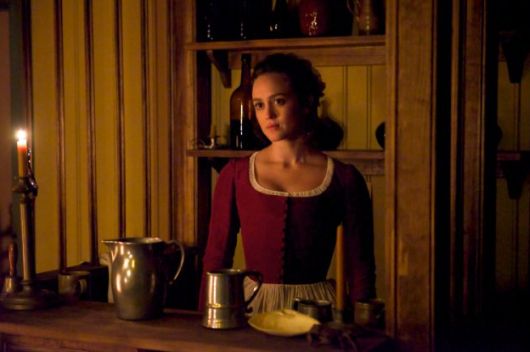
Desperate Uncertainty
by RACHEL WILLIAMS
Turn
creator Craig Silverstein
It has been six years since the Emmy award-winning miniseries John Adams aired on HBO. Based on David McCullough’s acclaimed biography of America’s second president, the series stripped away the veneer of mythology that swirls around the events of the Revolutionary War, humanising the Founding figures who dominate cultural depictions of the conflict, and injecting a dose of grime and cynicism into an all-too-often sanitised and triumphal narrative.
AMC’s new Sunday night offering, Turn, based on Alexander Rose’s book Washington’s Spies: The Story of America’s First Spy Ring, does even more to disrupt the Founding Father narrative, focusing on places, people, and actions that have, until now, lurked on the periphery of the popular imagination.
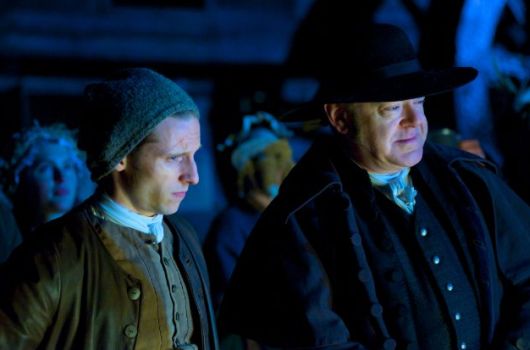
Turn tells the story of the Culper Spy Ring, established at George Washington’s command to operate in the heart of British territory at a time when conventional methods of warfare were failing to break the empire’s stranglehold. From the outset, this is an unconventional Revolutionary War tale; we start, not with the Boston Massacre of 1770, nor with boxes of tea cast over gunwales in 1773, but months into the war – months after the heady rhetoric of the Declaration of Independence has given way to the bloody, protracted reality of securing permanent separation from the Crown.
The scrawled text which opens the series is loaded with language that underlines how doomed this project seems – Washington’s forces are in retreat everywhere, and the men and women who will eventually call themselves Americans are dismissed as “insurgents,” “rebels,” “sympathisers.”
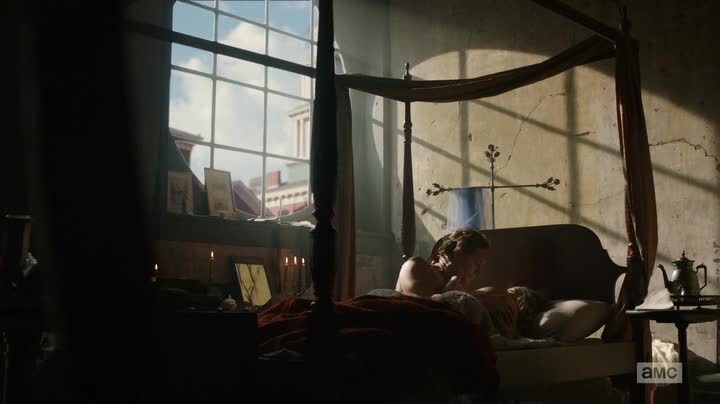
The geographical locus of the series is unusual, too; far from Philadelphia and the high political wranglings of the Continental Congress, this war plays out in the fields and woodlands surrounding the tiny community of Setauket, Long Island. Here is fledgling America at its most untameable: the action takes place, not in the stately buildings and hushed council chambers of John Adams, but along boggy coastlines and in ancient forests. New York City, the main counterpoint to the wilderness of Setauket, is a bawdy, corrupt place filled with licentious theatres, shadowed corners, and dank jails.
The people of isolated, inconsequential Setauket, then, react to the continuing British occupation with varying degrees of disgruntlement. Among them, struggling to get through the war unscathed, is Abe Woodhull (Jamie Bell), a young farmer with a family to feed and a maggoty crop of cabbages to tend.
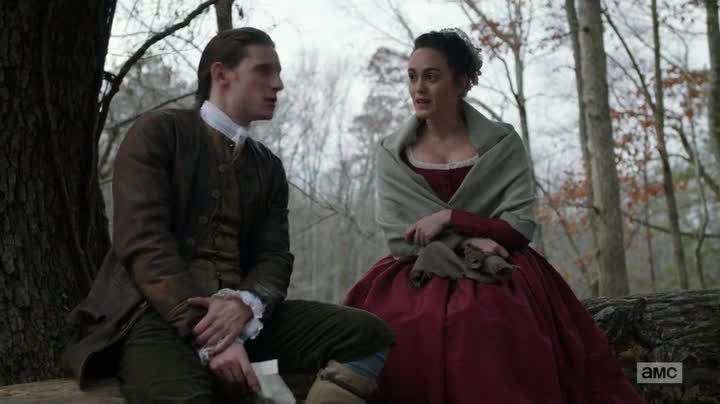
Abe is no idealistic hero – he is more concerned with the debts against his name than with the lofty aims of independence, yet he finds himself drawn against his will back into the orbit of his old friends, bluecoated Connecticut Dragoon Ben Tallmadge (Seth Numrich) and scruffy smuggler Caleb Brewster (Daniel Henshall). Tallmadge and Brewster, their bridges in Setauket burned through public declaration of their Patriotism, and aware that the dastardly British have a mole in the Continental army, single out their old friend to turn spy for the rebels.
Even before he is recruited, Abe’s efforts to keep the marks and taints of war from his door are increasingly futile; there are British regulars billeted in his house, their red coats a violent and ominous disruption to the grubby, autumnal palette of his farm. Even his little son is a political battleground – his wife, Mary, warns against teaching the boy to walk (“the sooner he can walk, the sooner he can march”) only days before Abe’s father brings a soldier toy fit for a future Loyalist.
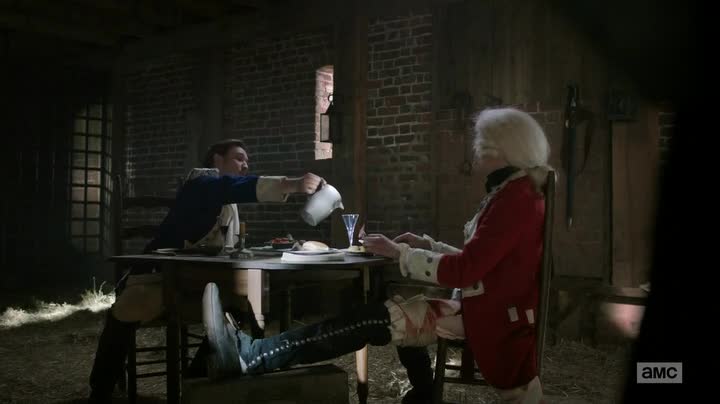
No matter how hard Abe tries to hold onto the structures and traditions that have shaped his life, he can see them crumbling before his eyes. There is a naivety to his conviction that life will revert to its old rhythms once the war is over. Legacies, his father warns, have been sullied forever and irreparable rifts are opening in the community. Lovers are torn apart by politics, church pews are ripped out and replaced with officers’ desks, and the respect and obedience once considered a parent’s due are no longer foregone conclusions.
The simmering tensions and ambiguous loyalties at play in Setauket are symptomatic of the larger crises of social, moral, and political authority that made the Revolution possible. Major Hewlett (Burn Gorman, in excellent pursed-lipped form), the local commander, loudly heralds the primacy of the law from the safety of his garrison, even as, outside, villagers re-enact the most mythologised of anti-establishment stories - Guy Fawkes and the Gunpowder Plot - with a gusto that makes it difficult to discern where their sympathies lie.
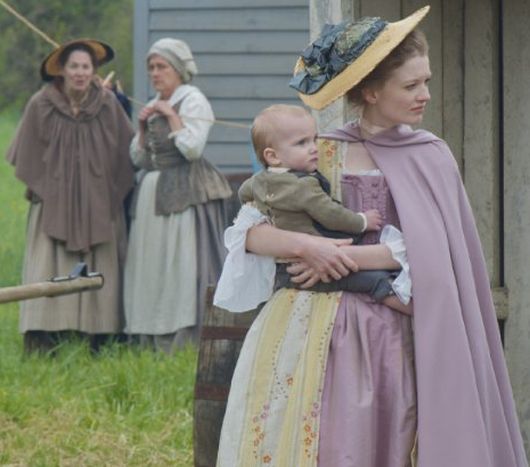
It is all too easy to forget how distinct the colonies were from each other in 1776, and the vast, perilous distances people, goods, and information had to traverse. The task of building a nation from insular, isolated localities was immense, haphazard – we forget, too, how unlikely a Patriot victory was at almost every stage of the war. It was almost inconceivable that the British crown would be defeated by these upstart provincial rebels, especially when so many were cut from the same cloth as Abe Woodhull; politicised accidentally and against their will, seeking nothing more than a quiet life.
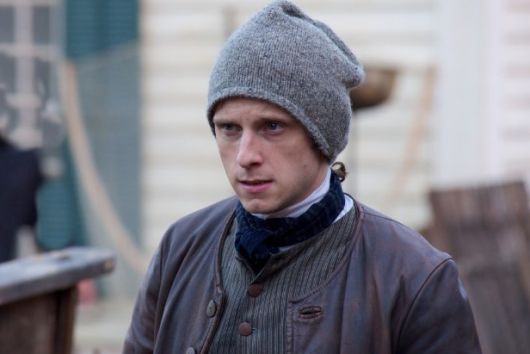
This is what Turn does best; it explodes the myth of inevitability, and reminds us that America’s future was far from secure in 1776, by flipping the triumphalist, teleological motifs of previous cultural incarnations of the Revolution on their head. There is plenty that is familiar here – cold, plum-voiced British officers, plucky tavern wenches, gruff Scotsmen – but there is much more that is new, or different, or troubling.
This is a grimier, messier Revolutionary War than we usually see, one where vicious scout groups wage amoral, opportunistic guerrilla warfare in the undergrowth, and where political allegiance is based as much on pragmatism as principle. "They picked the wrong side," Abe’s father, Richard, says of Patriot families forced to flee the town, urging his son to break all ties with dangerous sympathisers. Even if we know that, eventually, he will be proved wrong, Turn captures the desperate uncertainty of the Revolutionary era, and in so doing, renders the actions of the rebels – especially the reluctant among them – more remarkable and more extraordinary. There is a sweet and knowing irony to Major Hewlett’s smug quotation from Henry IV, Part II, when, relaxing after a fine meal, safe in the knowledge of the might of the British army, he declares, "O God! that one might read the book of fate,/ And see the revolution of the times/ Make mountains level, and the continent,/ Weary of solid firmness, melt itself/ into the sea!"
Rachel Williams is the senior contributor to This Recording. She last wrote in these pages about Sleepy Hollow. She is a writer living in Nottingham. You can find her twitter here.

"Vertigo" - Jason Derulo ft. Jordin Spark (mp3)
"Bubblegum" - Jason Derulo ft. Tyga (mp3)
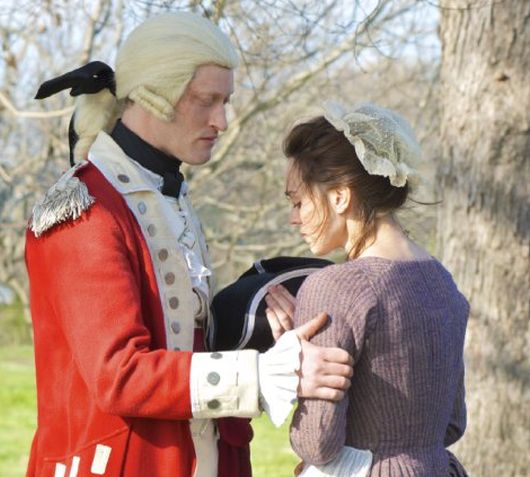
 amc,
amc,  rachel williams,
rachel williams,  turn
turn 





























Reader Comments